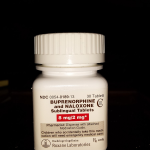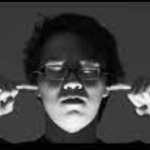Exactly 10 years ago -December 2, 2013 - my first-ever published opinion piece about the erosion of pain control appeared in The New York Post. It was titled "New painful casualties of the drug war" and was written three years before the CDC's formal declaration of war on pain patients. It is frightening to look back a decade and see how much of this has come true. Plus much worse. Here is the article from the Post opinion page.
Policy & Ethics
Politicians fail to understand that "gain of function" research on microorganisms can enhance public health preparedness.
In this radio conversation, Lars Larson and I discuss his concerns about the testing and approval process for new drugs and medical procedures in the United States.
If you need further evidence that politicians don't understand the fentanyl crisis they helped to create, Sen. Joe Manchin (D-WV) has you covered. Meanwhile, we already sell some body fluids in select circumstances; will the day come when we sell body parts to the highest bidder?
The "wellness" industry has birthed yet another scam: health coaching. Usually lacking any medical or scientific training, these coaches will charge you a king's ransom for useless – and arguably harmful – advice. Buyer beware. Meanwhile, the CDC says everyone six months and older needs COVID boosters. Here's what the data show.
I remember answering patients’ questions in the office (or on the phone later when the fog of what I had told them had dissipated) and there were other “concerns.” Today, more and more doctor-patient discourse is digital and comes at a cost, both financial and medical.
On November 11th, America honors and celebrates our veterans. November 11th was originally Armistice Day to commemorate the cease-fire of the Great War, World War I, that took place at the eleventh hour of the eleventh day of the eleventh month.
I know many veterans personally. Lots of family and friends served. Most honorably left their military service unharmed. Some left the service with deep wounds and scars. And some did not make it back alive. On Veterans Day, we thank them all for their service.
The pandemic’s successful expansion of pharmacists’ scope of practice to include vaccinations has given some people the idea that pharmacists can fill other gaps in primary care, like prescribing medications for our greatest comorbidity, high blood pressure, or hypertension. A new, deeply flawed analysis of the economic benefits suggests savings of money and lives.
Last year, Congress passed the Mainstreaming Addiction Treatment (MAT) Act, seeking to expand access to buprenorphine, a proven treatment for opioid use disorder. However, a recent proposal by the Drug Enforcement Administration threatens to undermine Congress' intention. Now, some members of Congress appear ready to push back.
The U.S. Government doesn't want to hear the message: The Centers for Disease Control and the Veterans Administration published practice guidelines on the prescription of opioid pain relievers in 2022 that they knew were unsupported by science and harmful to public health. The Department of Health and Human Services is stone-walling repeated demands for a senior staff review of these issues.
Either of two phenomena may be at work -- the "placebo effect" or the "post hoc, ergo propter hoc" (after this, therefore because of this) fallacy.
Roadside drug tests are unreliable, so why are they so widely used in the U.S.? Meanwhile, researchers who make "health disparities" the focus of their work sometimes misrepresent their results. Here's a textbook example from a study that used pulse oximetry to measure disparities in COVID-19 treatment.










